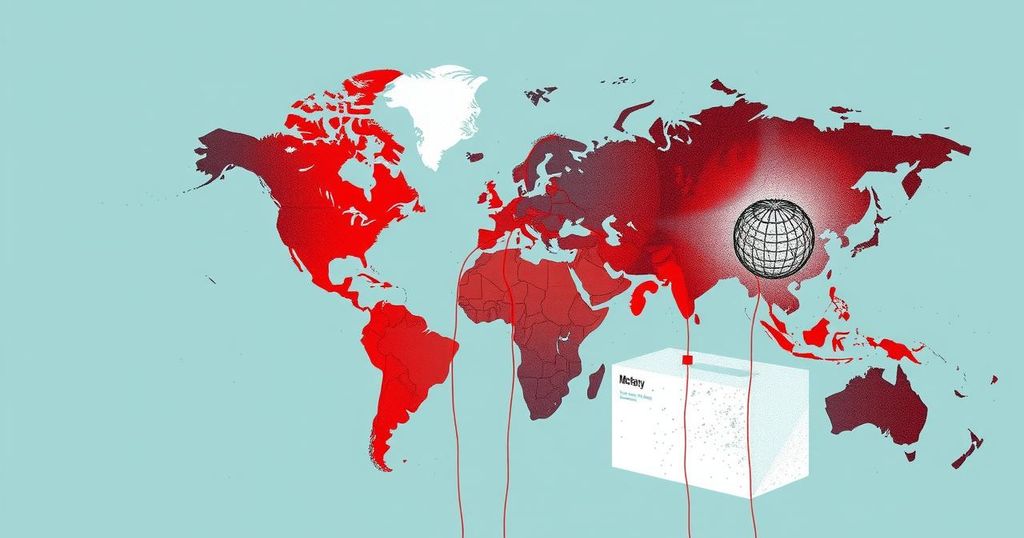The Impact of Misinformation and Foreign Influence in the 2024 Elections

The 2024 elections engaged around 3.7 billion voters globally, amid concerns of misinformation and foreign interference. While many elections seemed largely unaffected, significant incidents—including a Romanian election annulment due to foreign influence—highlight the ongoing threats to electoral integrity. Noteworthy cases from Pakistan, the EU, Moldova, and the U.S. showcase the pervasive challenges posed by AI and disinformation in political systems.
The 2024 electoral cycle saw unprecedented participation with approximately 3.7 billion eligible voters across over 70 nations, marking a significant moment for global democracies amid rising concerns over misinformation and foreign influence. Notable elections occurred in major democracies such as the United States, India, and Indonesia, as well as in authoritarian regimes like Iran and Russia. The European elections in June alone witnessed 182 million citizens casting their votes in a powerful demonstration of cross-border electoral engagement. Despite worries surrounding misinformation and artificial intelligence affecting electoral processes, many reports indicate that these influences did not substantially alter the outcomes of the elections, although serious incidents of manipulation did occur, notably in Romania.
In February, Imran Khan, the imprisoned former Prime Minister of Pakistan, leveraged artificial intelligence to fabricate a speech claiming election victory, illustrating the potential for AI technology to distort political realities. The European Union faced its own disinformation threats leading up to the June elections, with a rise in pro-Kremlin propaganda and confusion tactics. Notably, attacks were reported on multiple Dutch political party websites.
Moreover, Moldova’s referendum and presidential elections were complicated by significant financial interference from Russian sources, raising questions about the integrity of electoral choices. The United States also encountered disinformation challenges, with bomb threats disrupting polling activities across pivotal states during its presidential election.
Lastly, Romania’s presidential election was infamously impacted when the Constitutional Court annulled the election results due to evidence suggesting state-sponsored manipulation of the electoral process. These instances reflect the broader global dialogue on the need for electorates to remain vigilant against misinformation and foreign meddling in democratic processes.
In 2024, the world witnessed one of the most consequential years for elections, as democracies faced unprecedented challenges from misinformation, artificial intelligence, and foreign interference. The spike in eligible voters and significant electoral activities globally underscored the crucial role that accurate information plays in democracy. Concerns surrounding misinformation were paramount, prompting various governments and election bodies to bolster their defenses against manipulation. While many electoral outcomes appeared unaffected by external meddling, notable incidents like the Romanian elections revealed the risks that still linger, highlighting the ongoing need for vigilance in safeguarding electoral integrity.
The events of 2024 have made it abundantly clear that misinformation and foreign interference remain critical challenges for democratic systems worldwide. While some reports suggest that these factors had only a limited impact on election outcomes, specific incidents—like the annulment of Romania’s presidential election results—underscore the need for continued vigilance against such threats. Global democracies must prioritize the integrity of their electoral processes to safeguard against manipulation and ensure that public trust is maintained in democratic institutions.
Original Source: www.euronews.com







